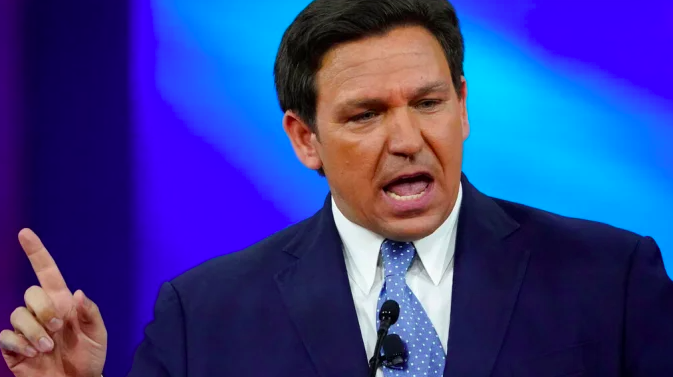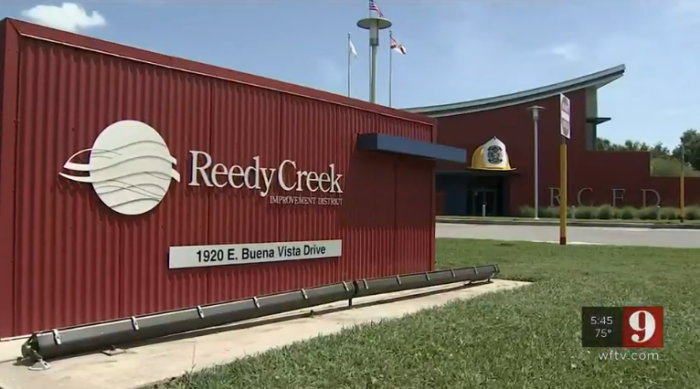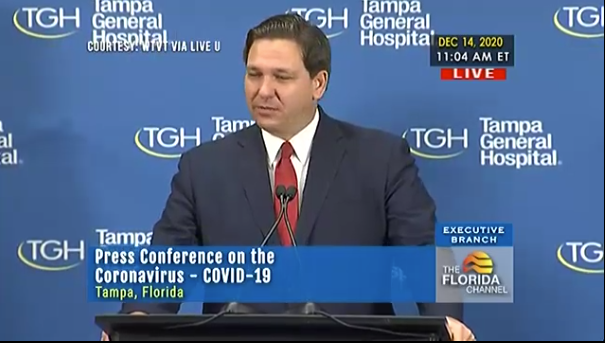Disney’s Reedy Creek Improvement District (“RCID”) has essentially died (in some ways) thanks to a bill passed by the Florida legislature. But Disney’s not going down without a fight, right? Well…it’s not that simple.
For over 50 years, the established RCID structure has given Disney a lot of power over the land on which it operates in Orlando, Florida. As the majority landowner, Disney has been able to select people “friendly” to the Company to serve on the Board of Supervisors that makes critical decisions related to the land that is home to Disney World’s theme parks. Key parts of that structure will be changing soon, and Disney might just “let it happen.” Here’s why.
What Happened?
Let’s go over some Reedy Creek 101 very quickly (if you already know the basics, hop down to the next section!). The RCID essentially acts as its own county and has the ability to make decisions regarding the District’s sewer system, emergency services, and more.
But, following Disney’s statements against Florida’s Parental Rights in Education bill (what critics call “Don’t Say Gay”), the Florida legislature passed a bill (and Florida Governor Ron DeSantis signed the bill) that would dissolve the RCID by June 1st, 2023. Many have described this as being an act of retaliation against Disney for speaking up against the “Don’t Say Gay” bill.
There was a lot of speculation as to what would happen to the RCID, with the Governor insisting that it would be controlled by the state. And in early 2023 we finally got some clarity. During a special session of the Florida legislature, a bill related to the RCID was passed by the Florida legislature. It is now pending Governor DeSantis’ signature but is expected to be signed soon.
This bill (once law) would change the name of the RCID and make a critical change to how it is governed. Instead of a Board of Supervisors selected by the majority landowner, the Board would be entirely made up of individuals selected by the Florida Governor and confirmed by the Florida Senate.
The District itself would retain most of its key powers (including control over decisions regarding sewage and emergency services, the ability to issue bonds, and more). But the bill would strip the District of some powers, like the ability to create a nuclear power plant (which has not been seriously considered, according to the Orlando Sentinel), and it would impose new requirements on the district mostly relating to reporting.
Disney has been relatively quiet on the matter. Most recently, the President of Walt Disney World Resort commented, “We are focused on the future and are ready to work within this new framework.”
But is that the end? Is Disney going to just sit this one out and let the RCID “die”? Turns out…they might.
Disney Could Have a Powerful Legal Argument
In an article shared by Bloomberg Tax, Jacob Schumer, an attorney in Florida, addresses the legal case Disney could have against the changes being made to the RCID. Schumer points out that once the bill is signed into law, “Disney World will go from being uniquely independent to uniquely under political control,” and there’s only one line of influence over the governing Board — DeSantis’ office.
Schumer argues that because Florida will be taking control of the RCID, Disney “has a strong legal argument that the bill amounts to unconstitutional retaliation against protected speech.” Disney could challenge the bill on the principle that “an otherwise valid government action can be rendered unconstitutional due to improper motive.”
According to Schumer, “DeSantis and Florida’s legislature haven’t been shy about the passage of the original bill dissolving Reedy Creek being a direct response to Disney’s public statements regarding Florida’s enactment of the ‘Don’t Say Gay’ bill.” One Florida representative suggested renaming the new District “Florida’s Attempt to Silence Critical and Independent Speech and Thought.”
Former Vice President Mike Pence even commented on the issue and DeSantis’ actions saying, “The idea of going after their taxing authority. That was beyond the scope of what I as a conservative, a limited government Republican, would be prepared to do.” (Yahoo)
Schumer points out that the United States Supreme Court has held that corporations have “First Amendment protections from government retaliation for political speech.”
Disney could argue that the entire situation surrounding the dissolution of the RCID all started as “part of a blowback from a constitutionally protected statement” and insist that there is a “clear line of causation between that bill and this replacement removing Disney’s voting powers.” Schumer opines that Disney would have a “powerful case.”
But the case would have its issues. Courts can be hesitant to look into the motives of legislation, particularly if the legislation looks valid on its face. But that might not apply when a law singles out the person complaining about the retaliation. While this bill doesn’t name Disney, it does describe Disney’s properties that make up the District.
So if Disney has a potentially powerful case (and is certainly no stranger to lawsuits), why not sue?
But They Might SKIP the Battle — Why?
There are actually multiple reasons that could be motivating Disney’s decision to keep this battle OUT of the courthouse.
It Doesn’t Impact Powers that Matter
While the new bill does impact the selection of the Board of Supervisors and some other rules related to the District, the Orlando Business Journal points out that it won’t impact what the RCID already did on its own or its powers that really matter.
The RCID has already helped Disney do a lot. And while the new bill will remove Disney’s ability to put “friendly” faces in power, it still allows the District to do critical things the District has always done — make certain permitting decisions, issue bonds, and provide for the District’s sewer services and emergency services.
Sure, it adds on some extra reporting requirements (some of which Disney had already been complying with) and removes Disney’s ability to build a nuclear power plant (which it hadn’t done anyway), but it keeps the District’s key powers in place.
Disney Has a Loophole
Some theorize that there is a sort of “loophole” which could help Disney deal with some potential RCID issues. Chad Emerson (author of the book “Project Future: The Inside Story Behind the Creation of Disney World”) has pointed out that this new bill shouldn’t prevent Disney from shifting some key things — like permitting, approval, or certain other processes the RCID currently does — to the cities within the District (Bay Lake and Lake Buena Vista).
Those cities haven’t been impacted by this new bill so their powers remain intact. If the new Board of Supervisors starts causing problems for Disney, Disney could theoretically create departments within the individual cities to handle certain things Disney might need.
That doesn’t mean the District would be pointless — it would still handle some key infrastructure and drainage things. But some powers could potentially be taken away from the District and given back to the cities that Disney “relatively controls.”
Click here to read our full post about this potential loophole!
Political Peace
But the key reason behind Disney’s decision to let this bill simply “happen” might be a desire for “political peace.” As Schumer puts it, “Reedy Creek is great to have, but open conflict with Gov. DeSantis and others presents a serious issue for Disney as a whole.”
Sure, the RCID has been critical to Disney’s way of doing things up until now, and getting its independence back would be valuable, but putting the Company’s battle to rest with those currently in control of the state’s government might be even more valuable.
If Disney were to sue on this bill, it would keep the “political target on Disney’s back, potentially for years,” as the case makes its way through the courts. Plus, Disney might have to disclose sensitive records related to its discussion of political matters with no guarantee that the records would stay sealed.
Schumer argues that Disney has a “lot more to lose than Reedy Creek…and its political independence may be a small price to pay for a relationship with Florida’s government that isn’t downright hostile.”
Even if Disney were to win on this legal challenge, there’s no guarantee that another bill of a similar nature couldn’t be enacted years from now, when the retaliation argument would not be as clear or powerful.
Interestingly, Disney seems to already be making “amends” with Governor DeSantis in other ways. The Washington Post points out that two of the major fundraisers for DeSantis’ inaugural festivities were lobbyists for Disney.
An “Unreasonable” Board Runs a Risk of Their Own
It’s also important to note that during “ordinary times,” the District’s main functions usually focus on, according to Schumer, “boring questions” about contracts, debts, and infrastructure. If the replacement Board is relatively “friendly” to Disney, there could be little change at all — so why fight it?
The expectation is that business could return to “normal” for the most part, with the new District leaders likely agreeing to Disney’s “reasonable proposals.” If they don’t agree to Disney’s reasonable requests and refuse to maintain a “healthy governmental environment,” the Board of Supervisors runs a risk of their own — undermining “Disney World, a cultural powerhouse and the state’s largest employer.”
According to the Orlando Business Journal, some have raised concerns about whether the new District will maintain the existing Disney standards, like keeping the differently-colored road signs that provide a sense of escapism. But others have insisted that it’s more likely that the Board will continue to work in Disney’s best interest since they are the main property owner. David Ramba (executive director of the Florida Association of Special Districts) shared, “Do they have to? No. Will they? If the largest person that owns property has a recommendation, I think they will take it into consideration.”
So it seems that Disney might give up a powerful case mainly for political peace and on the expectation that things could return to “normal” in many ways. Of course, these are all just arguments and expectations at this time. We’ll have to wait and see what ultimately happens, so check back with us for the latest updates.
Click here to read more about the changes that will be made to the RCID under the new bill
Join the DFB Newsletter to get all the breaking news right in your inbox! Click here to Subscribe!
What do you think will happen with Reedy Creek? Tell us in the comments.















 Our handy (and portable!) ebook guides make sure you get the best deals and can plan a vacation of a lifetime.
Our handy (and portable!) ebook guides make sure you get the best deals and can plan a vacation of a lifetime.

TRENDING NOW
Amazon's Black Friday Week is right around the corner!
A Disney World hotel is EXPANDING!
The time is NOW to grab these popular Disney items while they're ON SALE!
We had Afternoon Tea at The Cake Bake Shop!
NOW is the time to stock up on Disney souvenirs and essentials!
Disney's making history again at the Rose Parade. Find out how here!
Disney World's pay-to-skip-the-line service changed over the summer and two offerings disappeared with the change!
Fans will be flocking to see "Wicked" this weekend, but one movie chain is issuing...
We checked out the NEW Haunted Mansion Parlor aboard the Disney Treasure and discovered a...
Learn how to make the PB&J Rolls from Disney California Adventure's Lamplight Lounge!
A NEW popcorn bucket is now available at Disney Springs.
The Disney Treasure has several small eating options.
Let's look through the 2024 EPCOT Food and Wine Festival Passport! These handy booklets help...
Disney just released a SNEAK PEEK at the Halloween merchandise to be released this fall!
We got a first look at Disney's NEW Haunted Mansion lounge!
See the full evolution of the Disney Dining Plan, from the original plan in 2005...
Ghirardelli is giving us the gift that keeps giving.
McDonald's is celebrating an iconic character's birthday with new menu items!
The Disney Store website is having a huge sale just in time for the holidays!
We celebrated Walt Disney's birthday with his favorite chili recipe! Take a look!